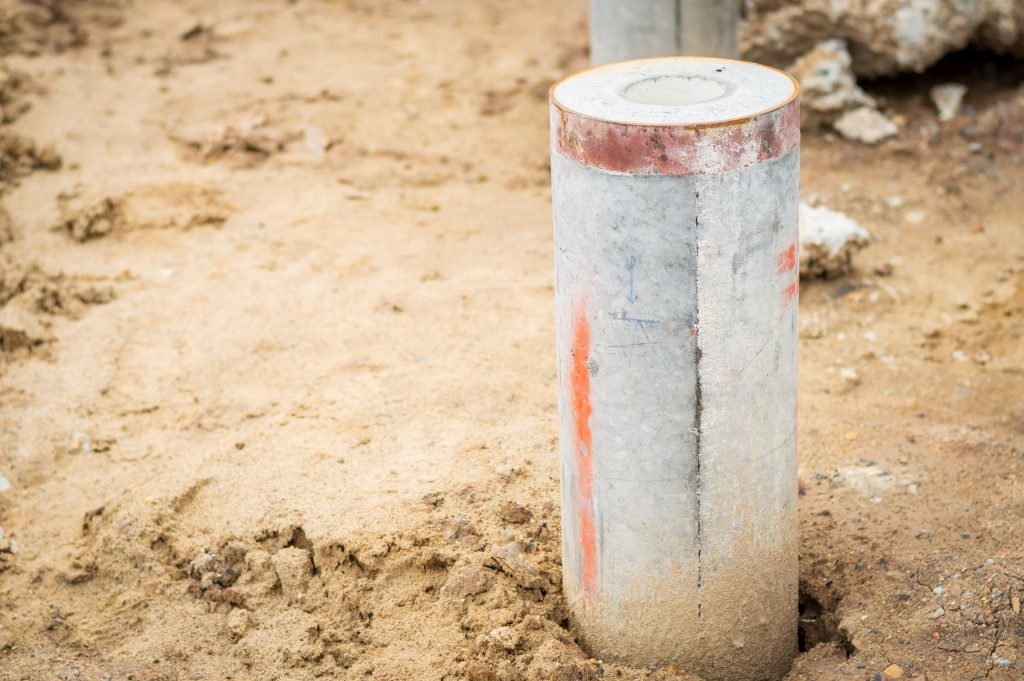Deficient concrete material is one of the common issues that cause integrity problem in bored pile construction. Some knowledge in possible causes of concrete pile deficiencies is necessary during pile testing resolution. During a non-destructive testing method, the resolution of the pile test result will be increased significantly to come up with the appropriate soil profiling, concrete quality, and length of the pile. Some major issues that must be considered when testing piles and analysing signals are:
Major Cracks
Major cracks in the concrete pile can affect its quality and reliability. These cracks can be due to poor construction or a result of damage in transportation and installation. Pile integrity inspection will give construction managers information on the presence of major cracks in the pile. It is reflected through acoustic waves used as it can show empty spaces between the concrete.
Major Voids
Void-filling forms also affect the quality and consistency of concrete piles. They affect the load-bearing capacity of the concrete piles. They also lessen the effective cross-sectional dimensions. Most pile integrity tests are not able to provide efficient information on the part of the pile that shows major voids or cracks underneath.
Soil Inclusions
 Another common problem that affects the integrity of concrete piles is foreign material inclusions such as slurry and soil lumps. When these foreign materials are included in the body of the concrete pile, it can affect the integrity and deep foundations. A borehole wall slide can occur and potentially lead to gaps in the length of the concrete pile and impact its bearing capacity. Using acoustic waves can be challenging when checking for soil inclusions because they might not properly show significant inclusions. On the other hand, sonic-echo integrity test might provide more efficient resort for this type of integrity issue.
Another common problem that affects the integrity of concrete piles is foreign material inclusions such as slurry and soil lumps. When these foreign materials are included in the body of the concrete pile, it can affect the integrity and deep foundations. A borehole wall slide can occur and potentially lead to gaps in the length of the concrete pile and impact its bearing capacity. Using acoustic waves can be challenging when checking for soil inclusions because they might not properly show significant inclusions. On the other hand, sonic-echo integrity test might provide more efficient resort for this type of integrity issue.
Necking Issues
Necking issues in some concrete piles occur when there is a rapid change in the cross-section while the pile is cast in soft clay. Necking can cause serious integrity problems and affect the load-bearing capacity of piles. The main causes of necking in concrete piles include large water loss, the development of thick mud cake, soft clay in new holes, the improper distance between pile construction and bit size that wear excessively.
Bulging Issues
These are seen as a shape imperfection in concrete piles. They are the increase in the pile cross-section areas along the length of the pile. While bulging can increase the maximum pile load capacity, it is still considered as a defect and should be checked. Bulges may be caused by foreign materials in the concrete pile, too. Pile integrity testing will help effectively identify necking and bulging issues in concrete piles.
Concrete pile integrity and non-destructive tests are essential in checking for issues and problems that affect the load capacity of the piles. These piles need to pass several integrity checks to ensure that they are suitable for their specific use. Major accidents can happen if these concrete piles will not be checked for potential integrity issues.
